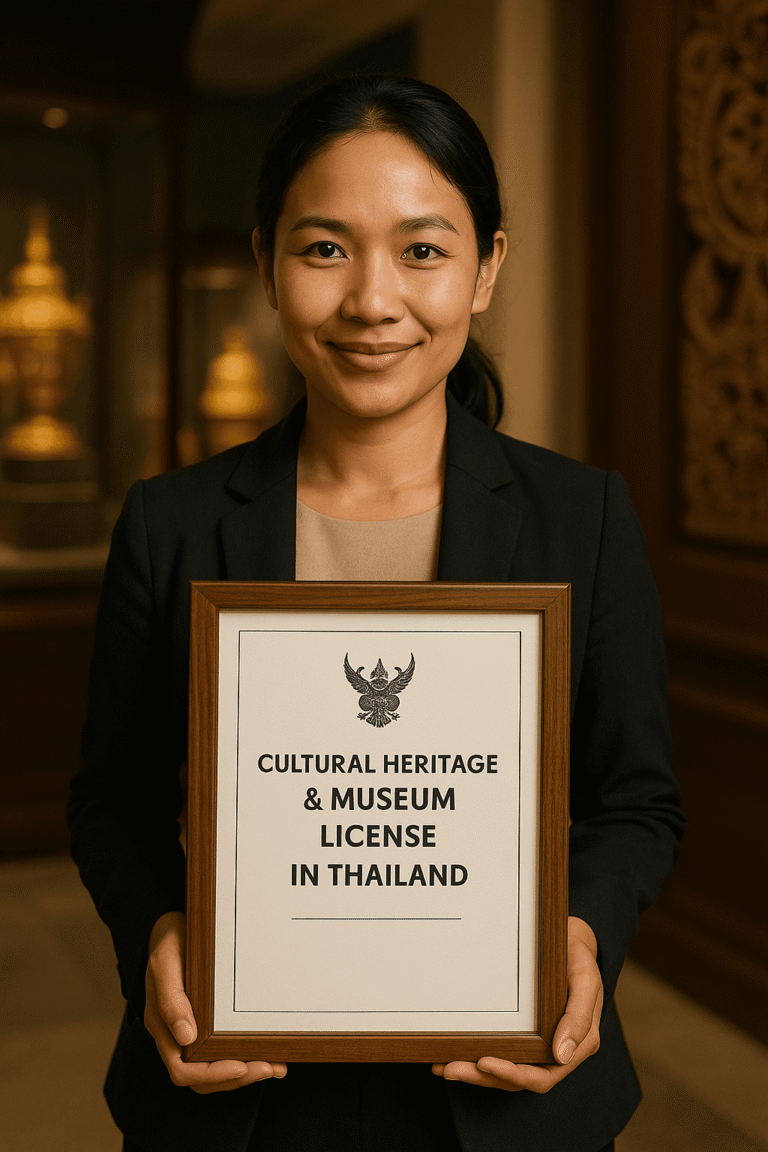To Trust

Operating a gallery, private museum, or cultural venue?
If you’re exhibiting historical artifacts, religious items, or traditional art—especially in a public setting—you’ll need a Cultural Heritage or Museum License to stay fully compliant with Thai cultural protection laws.
This license ensures your venue meets the standards of Thailand’s Ministry of Culture and, in many cases, the Fine Arts Department. It regulates how cultural items are displayed, preserved, and documented—even in privately-run spaces open to the public. Not sure where to start? SiamConsult can help you every step of the way.
SiamConsult helps you showcase your heritage the right way. We guide you through the entire licensing process, from item classification and venue registration to permissions for import/export, replicas, or sacred objects. If challenges arise, we address them—so you can focus on your collection and guests.
Setting up in southern Thailand? We support museums and galleries in Krabi, Ao Nang, Koh Lanta, Phi Phi Island, Phang Nga, and Phuket.
Whether you’re curating an art gallery, a tribal archive, or a spiritual collection, SiamConsult ensures your space is both inspiring and fully protected under Thai law.
Opening a cultural venue? Contact SiamConsult to license your museum or gallery properly from day one.
We start with a detailed consultation, whether you’re launching a museum, art gallery, performance venue, or cultural event.
SiamConsult clarifies whether your activity falls under the Ministry of Culture’s licensing requirements and which type of permit or event approval is required.
Our team reviews all relevant Thai and local cultural regulations, including those of the Ministry of Culture, Thailand.
We confirm eligibility, any Thai partner or legal requirements, and whether your project involves heritage, performance, or exhibition licensing.
SiamConsult prepares all necessary documents, including project proposals, venue floor plans, exhibition and artifact lists, artist/performer rosters, and comprehensive safety procedures. We handle translation and compliance with cultural heritage and venue safety laws.
Your application is filed with the Ministry of Culture or the relevant provincial office. We ensure all paperwork, supporting documents, and application fees are accurate and on time. For detailed guidance, see the official Ministry guidelines for foreign cultural events.
Officials from the Ministry may inspect your venue, review your content for compliance, and check for safety and accessibility.
SiamConsult coordinates inspections, supports you during the visit, and assists in addressing any issues.
We communicate directly with the Ministry and local authorities during the approval process—handling questions, providing revised documentation, and facilitating meetings or clarifications as needed.
Once approved, your Cultural License is issued. SiamConsult collects your official certificate, provides certified copies, and explains your reporting duties, renewal schedules, and any event-specific requirements.
Our support doesn’t end after approval. SiamConsult helps you maintain annual reporting, submit renewals, and stay compliant with changes in Thai cultural or safety regulations.
Need help applying for a cultural, art, or event license in Thailand? Contact SiamConsult for comprehensive, local guidance and a smooth approval process—so you can focus on your audience, not red tape.